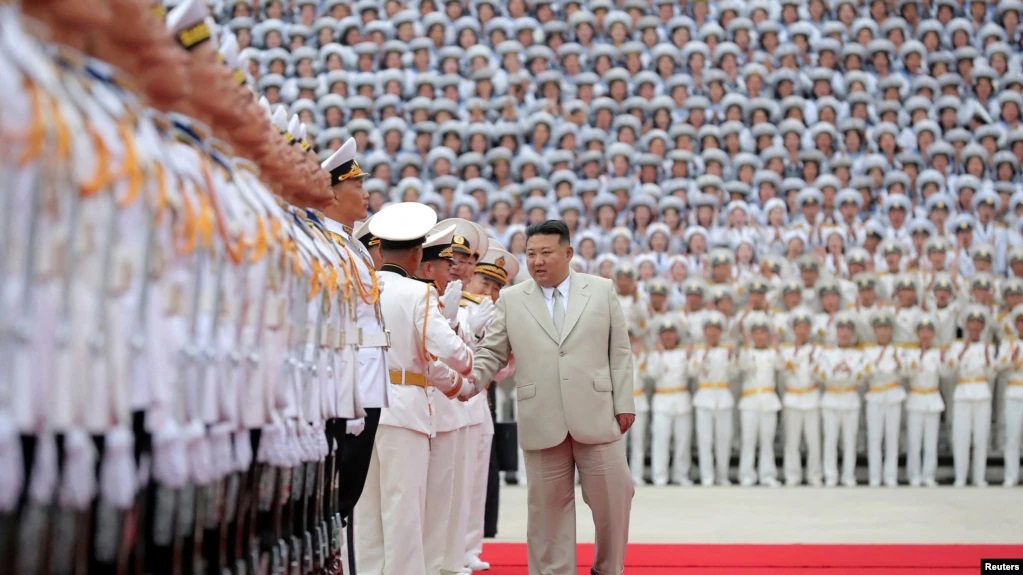Chinese Efforts to Boost Domestic Stock Market Sputter
Written by worldOneFm on August 29, 2023
The Chinese government over the weekend launched an effort to shore up the country’s troubled stock market, putting in place various measures to encourage investment. As of Monday, those measures appeared to have had only a modest impact.
After opening more than 5% higher Monday than it had been at the end of trading the previous week, an index that tracks the share prices of 300 of the country’s largest companies lost most of those gains before the end of the day. It closed up just 1.2% at the end of the day.
The CDI 300 index is down nearly 7% since the beginning of August, part of a long-term decline that has seen the index lose more than 35% of its value since early 2021.
In a significant footnote to the day’s trading, Monday also marked the return to active trading of shares in troubled property developer Evergrande, which had been suspended 17 months ago after debt defaults led to investor flight. The stock lost 87% of its value during the day’s trading.
Government plans
Beijing’s plans to boost the sagging stock market came while officials had to acknowledge that profits in China’s industrial sector continued to decline in July, falling 6.7% from a year earlier after an 8.3% drop in June.
One measure meant to spur investment was a cut in the so-called stamp duty, a fee that investors must pay on stock transactions, from 0.1% to 0.05%. Previous cuts to the stamp duty in 2008 and 2015 caused short-term surges in share prices, but in both cases, the market soon turned downward again.
The government also barred people who own controlling interests in some public companies from selling their shares. The restriction was aimed at corporations that have not paid a dividend in the past three years, are currently trading below their initial public offering prices, or if the market value of their shares has fallen below the net value of their assets.
Chinese regulators have also said they plan to reduce the number of companies being allowed to launch initial public offerings, a move meant to prevent diluting demand for the shares of companies currently listed on the country’s exchanges.
Other measures
The rules governing a practice known as margin lending will also be relaxed, in an effort to create more demand for stocks. Margin loans are made to investors who use the borrowed funds to invest in stocks that they expect to offer a rate of return higher than the rate of interest being charged on the loan.
Margin investing is inherently risky and such borrowers are typically required to maintain a separate account that holds the equivalent of a specified percentage of the borrowed funds in cash. The Chinese government said that it will reduce that percentage, a move that will encourage more margin investing and boost demand.
In addition, Bloomberg reported Monday that the government has issued instructions to some of the country’s largest mutual funds to be certain that their trading in shares of domestic companies does not result in a net sell-off of shares, meaning that they must buy more shares in Chinese firms than they sell.
In an email exchange with VOA, Loren Brandt, the Noranda Chair Professor of Economics at the University of Toronto, said that China appears to be working from a playbook like the one it used when facing a similar crisis in 2015 and 2016, and which had poor results.
“The interesting point of comparison is the government intervention in 2015-16, which had some small positive benefits in the short run that 1. Disappeared in the long run, and 2. May have adversely affected the functioning of equity markets in the long run through problems of moral hazard and price distortions,” he wrote.
Foreign investors selling
While the Chinese government has significant capacity to influence the behavior of domestic investors, including mutual funds and other institutional investors, its influence over non-Chinese market participants is much more limited. And those investors are not happy.
Foreign investors have been pulling their money out of China for the past several months, with outflows totaling in the tens of billions of dollars.
In an appearance on CNBC on Monday, Brendan Ahern, the chief investment officer of KraneShares, an American company that manages funds invested in Chinese firms, said that foreign investors want to see more action from the government.
“We want to see more significant policy measures implemented by the Chinese government,” Ahern said. “They’re doing little things around the edges on real estate, on domestic consumption.”
The rapid fading of Monday’s rally, Ahern added, “just shows the level of skepticism” that investors currently have toward the Chinese market. “People want to see real meaningful change,” he said.
Private sector spooked
Some experts say that a combination of heavy-handed lockdowns during the COVID-19 pandemic and several years of crackdowns on Chinese companies that have established successful international operations have left private sector investors wary of investing in the country.
In addition, well-known problems in the economy, including high youth unemployment, a struggling real estate sector and a banking industry burdened with billions in bad loans have all combined to create a further drag on investor sentiment.
Also appearing on CNBC, Eswar Prasad, professor of trade policy at Cornell University and a former head of the International Monetary Fund’s China section, said, “Private investment has essentially collapsed over the last year. Household consumption is very weak. And that’s because there isn’t a clear sense of policy direction from the government, and the crackdown on the private sector in 2021 and 2022, has really dented private sector confidence.”
“What’s really key is not just to get words from Beijing, but actions to show that they’re willing to support private enterprises, which they really need for both domestic innovation productivity growth and in addition, employment growth. But they need to send that message in a way — that it really resonates with the private sector. So far, we’ve seen words. No real actions,” Prasad said.







